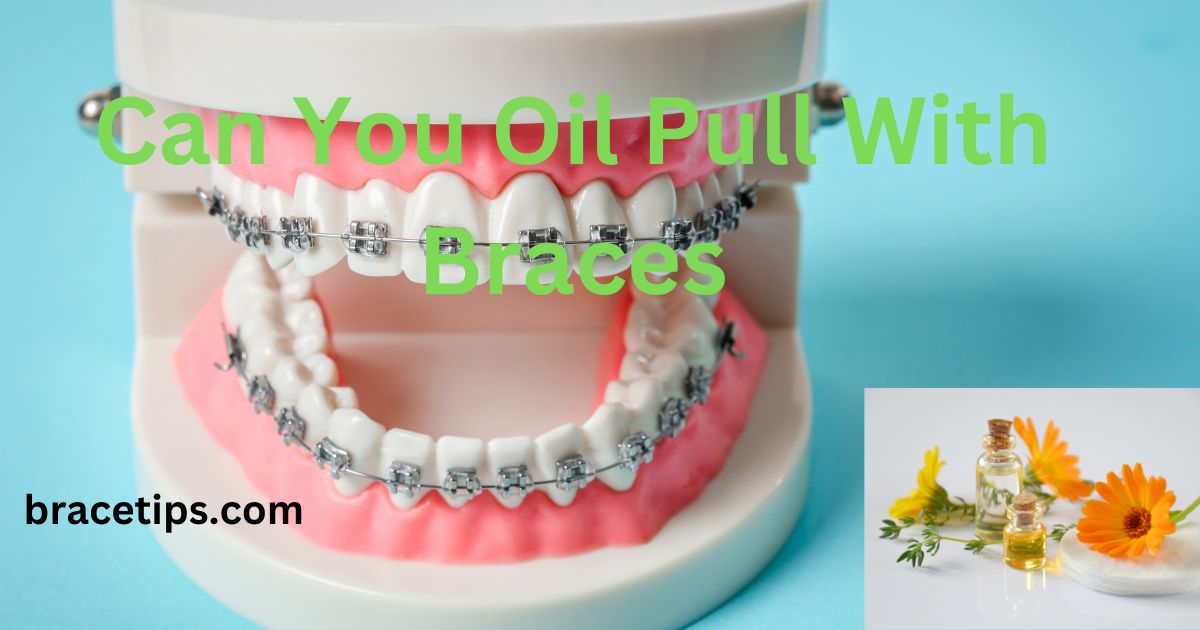Can You Oil Pull With Braces
Orthodontic braces have been a savior for many individuals seeking a perfectly aligned smile. However, maintaining good oral hygiene during orthodontic treatment can present unique challenges. One popular practice that has gained attention for its supposed oral health benefits is oil pulling. But can you oil pull with braces? In this comprehensive guide, we will explore the intricacies of oil pulling, its potential benefits, and whether it is a safe practice for those with braces.
How Does Oil Pulling Work?
Proponents of oil pulling claim that it helps remove toxins, bacteria, and plaque from the mouth, promoting oral hygiene and overall health. The swishing action is believed to draw out impurities, leaving the mouth feeling clean and fresh.
Can You Oil Pull with Braces?
The Concerns
- Risk of Dislodging Brackets and Wires: One major concern with oil pulling during orthodontic treatment is the potential for dislodging brackets or wires. The vigorous swishing motion may exert force on the braces, leading to complications.
- Difficulty in Cleaning Around Braces: Braces create nooks and crannies that can be challenging to clean thoroughly. Oil pulling might not effectively reach all areas, leaving behind the risk of plaque buildup.
- Increased Oral Sensitivity: Individuals with braces often experience heightened oral sensitivity. The extended swishing of oil may exacerbate this sensitivity, causing discomfort.
Considerations for Braces Wearers
Braces introduce additional elements to oral care routines. Metal brackets, wires, and rubber bands create nooks and crannies where food particles and bacteria can accumulate, posing challenges for cleaning. Before incorporating oil pulling into your oral hygiene regimen, it’s crucial to consider how braces might impact the process.
Feasibility with Braces
Accessibility
The primary concern with oil pulling and braces is accessibility. The hardware of braces can make it challenging to swish oil thoroughly throughout the mouth, especially around wires and brackets.
Potential Interference
Oil pulling may interfere with the efficacy of braces treatment by creating a barrier between the teeth and the braces components. This interference could impede the movement of teeth and hinder progress in orthodontic correction.
Professional Opinion
Orthodontic professionals generally advise against oil pulling for individuals with braces. The potential risks outweigh the perceived benefits, and alternative oral hygiene practices are recommended to ensure the safety and effectiveness of orthodontic treatment.
The Benefits of Oil Pulling
While oil pulling might not be advisable for those with braces, it does offer certain benefits for individuals without orthodontic appliances.
1. Reduction of Bad Breath
Oil pulling is thought to eliminate bacteria in the mouth, contributing to fresher breath.
2. Plaque Reduction
Proponents claim that oil pulling helps reduce plaque, leading to improved oral hygiene.
3. Gingivitis Prevention
Some studies suggest that oil pulling may help prevent gingivitis by reducing the bacterial load in the oral cavity.
Despite the challenges, some individuals with braces still choose to incorporate oil pulling into their oral care routine. Advocates of oil pulling suggest several potential benefits, even for those wearing braces:
Enhanced Oral Hygiene
Oil pulling may help reduce bacteria and plaque buildup around braces, contributing to improved oral hygiene oil pull with braces . By swishing oil around the mouth, braces wearers can target areas that are difficult to reach with traditional brushing and flossing.
Soothing Effects
The lubricating properties of oil could potentially alleviate discomfort associated with braces. Swishing oil around the mouth may provide temporary relief from soreness caused by metal brackets and wires.
Fresher Breath
Oil pulling is often praised for its ability to freshen breath by eliminating odor-causing bacteria. Individuals with braces may appreciate this benefit, especially considering the challenges of maintaining fresh breath while wearing orthodontic appliances.
Precautions and Tips for Oil Pulling with Braces
Consultation with Orthodontist
Before incorporating oil pulling into your oral care routine, it’s essential to consult with your orthodontist. They can provide personalized advice based on your specific dental needs and the type of braces you have.
Choose the Right Oil
Opt for a mild oil suitable for oral use, such as coconut oil or sesame oil. Avoid oils with strong flavors or additives that could irritate sensitive oral tissues.
Gentle Swishing
Be gentle when swishing oil around your mouth to avoid dislodging braces components or causing discomfort. Focus on moving the oil around the teeth and gums without applying excessive force.
Spit Carefully
After oil pulling, spit the oil into a trash can rather than a sink to prevent clogging. Rinse your mouth thoroughly with water to remove any remaining oil residue.
Maintain Regular Oral Hygiene
Oil pulling should complement, not replace, your regular oral hygiene routine. Continue to brush and floss diligently, paying extra attention to cleaning around braces.
Alternatives for Oral Health with Braces
Given the limitations and potential risks associated with oil pulling during orthodontic treatment, it’s crucial to explore alternative practices that can promote oral health without compromising the integrity of braces.
1. Water Flossing
Water flossers are effective in cleaning around braces, reaching areas that traditional floss might miss.
2. Fluoride Mouthwash
A fluoride mouthwash can aid in preventing tooth decay and maintaining overall oral health.
3. Regular Dental Check-ups
Frequent visits to the orthodontist for professional cleanings and check-ups are essential during braces treatment.
FAQ Section
Q: Can oil pulling cause braces to break?
A: The vigorous swishing motion during oil pulling poses a risk of dislodging or breaking braces, making it an inadvisable practice during orthodontic treatment.
Q: Are there specific oils recommended for oil pulling with braces?
A: While coconut, sesame, and sunflower oils are commonly used for oil pulling, it is not recommended for individuals with braces due to the associated risks.
Q: How can I maintain good oral hygiene with braces?
A: Opt for alternative practices like water flossing, fluoride mouthwash, and regular dental check-ups to ensure optimal oral health during braces treatment.
Conclusion
While oil pulling has gained popularity for its potential oral health benefits, it is not a recommended practice for individuals with braces. The risks associated with dislodging brackets and wires outweigh any perceived advantages. It is essential to prioritize alternative, braces-friendly oral hygiene practices to ensure the success of orthodontic treatment and maintain a healthy smile. Oil pulling with braces presents unique considerations and challenges, but it can be feasible with proper precautions and techniques. While some individuals may choose to incorporate oil pulling into their oral care routine for potential benefits such as enhanced hygiene and fresher breath, it’s essential to consult with an orthodontist and proceed with caution. By understanding the implications and following recommended guidelines, braces wearers can make informed decisions about integrating oil pulling into their overall dental care regimen.

